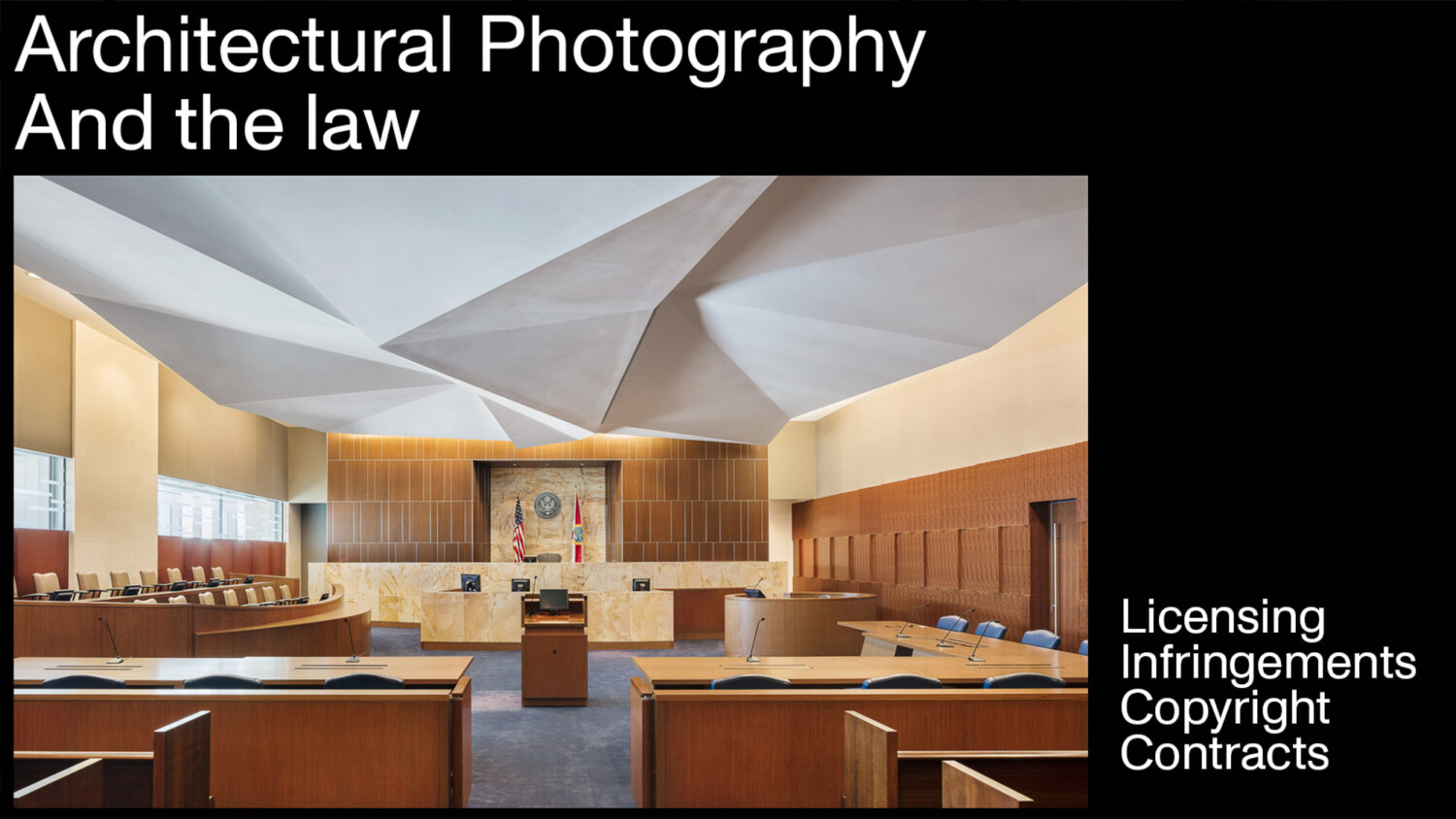Protecting Your Time With Site Condition Clauses
Editors note: This is where we have to jump in and remind you that APALMANAC is proud to be partnered with California-based intellectual property attorney Leslie Burns. Please remember that the answers here are not legal advice, but rather for educational purposes. If you do have specific questions about a potential case or personalized guidance, head over to her website and get in touch.
I bet that many if not most of you have a weather delay clause in your standard contracts (and if you don’t, you should). That clause lays out how you aren’t responsible for bad weather delaying your shoot and usually includes something about crew costs being reimbursed, at least in part, and maybe you even have a weather delay fee to cover your time and efforts (that used to be standard, but it is much rarely these days). There is a related clause I fear many of you are missing: the site condition clause.
Every architectural photographer has been there: the weather is perfect, the golden hour approacheth, and you and your crew arrive to shoot the client’s magnificent edifice only to find that the grounds crew has dug a huge trench to lay irrigation or that the beautiful outdoor sconces which you were tasked to capture in your image aren’t working. Oh no! You can’t fill the trench or do the wiring, even if you’re capable of it (liability reasons galore!) so you must go home and try again another day. Meanwhile, your crew needs to be paid, you’re out your time and travel costs, and you have to do it all again, meaning you can’t book another project on the re-shoot day.
Unless you have a site condition clause (aka site readiness clause or location prep clause, etc.) in your client-signed contract, you’re going to eat all those costs. Ouch. I was reminded of this problem in a recent conversation with a client. This photographer has had to return several times to a site because the client failed to have things ready for the shoot. The photographer bemoaned being out a lot of money and effort for the multiple trips and asked if there was anything to be done about getting paid for it. I asked if they had a site condition clause in their contract.
A site condition clause says, essentially, it is the client’s responsibility to make sure that the site is in photo-ready shape on the agreed-to shoot day. More importantly, it also defines the costs the client will pay if it does not fulfill that responsibility. It’s all well and good to say “you need to make sure it’s ready” but it’s a whole other ballgame when you say “and if it’s not you have to pay all my expenses, including crew, as well as a shoot rescheduling fee of $XXXX to cover my time, efforts, and inability to book another project for the day in the future when you are ready.” While no one can control the weather so sharing the costs can be reasonable, the client can and must be responsible for the site’s condition; moreover, it must face the ramifications when it fails in that responsibility.
Sadly for my client, they had only the first half of the clause in their (self-drafted) contract. That is, it said that their client is responsible, but it didn’t lay out the ramifications part. Without that second part, the best my client could do is say “you’re going to have to pay me for my time and expenses” and hope their client agreed; if not, there was nothing legal to force the payment.
Your clients may complain about signing an agreement with that clause but don’t back down on having it. Tell your clients that, as long as they keep up their end, they won’t have to worry about it. If they continue to push, you know what kind of client you are dealing with—someone who won’t have the site ready (and likely will be slow to pay as well). Sometimes, contracts can be what I call Client Darwinism: the good ones agree to reasonable clauses and the bad ones will push back… and should be dropped.
When the client is aware of its responsibility and the ramifications, the chances that you’ll arrive to find an unprepared site drop considerably. That makes it a win-win and you can sell it to your clients that way: you’ll be able to get your shot and make the client thrilled, all for the original price (and effort).
